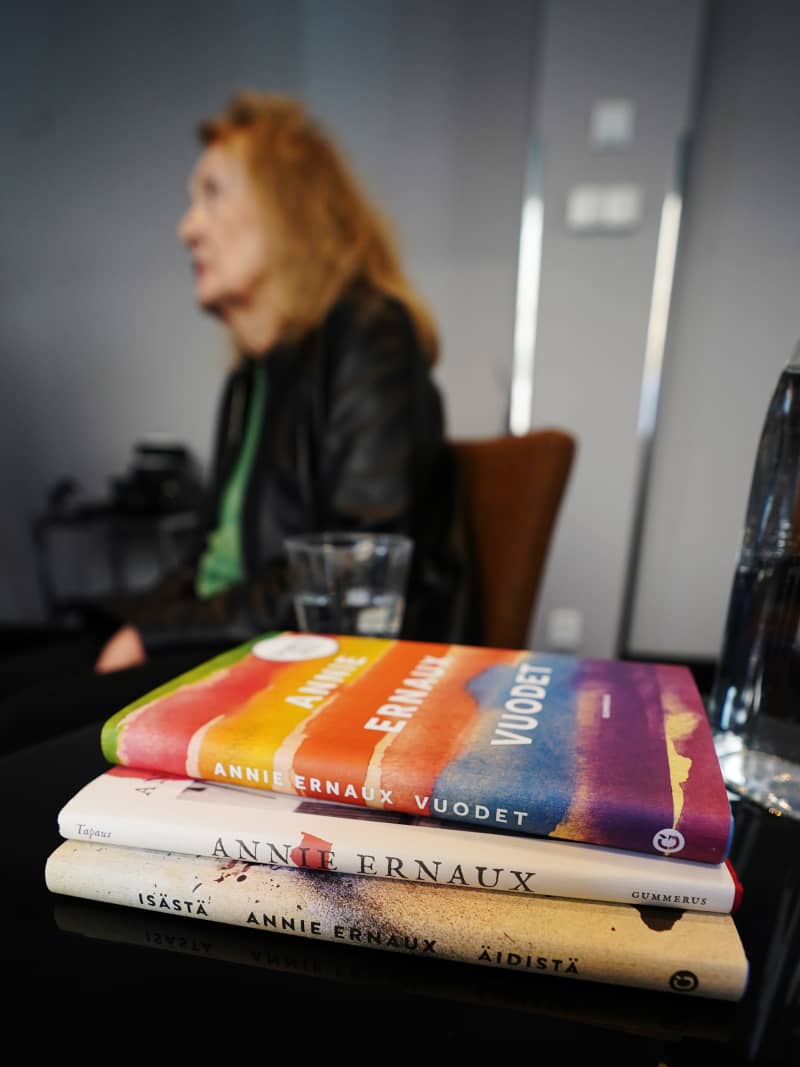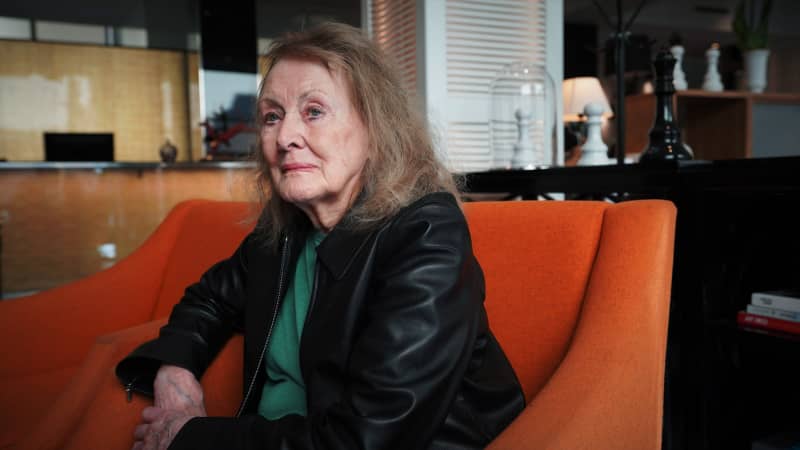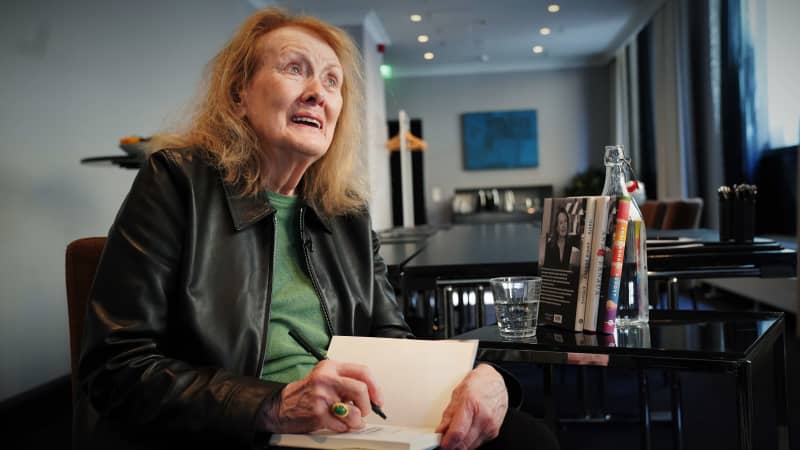In 2022, Annie Ernaux became the first French woman ever to win the world’s most prestigious literary prize. The Nobel Prize-winning author writes about her own life, but makes it common and social for all.
Direct and uncompromising, but also fragile. Black skinny jeans and leather boots.
– Men should go through their way of being. Reflect on their values and the myths that guide their lives, Ernaux said in an interview with Yle on Friday.
The 82-year-old Nobel Prize-winning author is in Finland for a two-day visit to the Helsinki Lit festival, which focuses on translation literature.
In her home country of France, Annie Ernaux is an active and fearless social debater. His works are loved and identified with them all over the world. During his 50-year writing career, both the author’s books and opinions have irritated the patriarchy and sometimes feminists as well.
In October 2022, Annie Ernaux was elevated to the highest pedestal in world literature when the Swedish Academy awarded her the Nobel Prize for \”courage and clinical precision\”.
In the author’s opinion, Nobel has social significance in addition to literature.
– In France, the male writer myth still lives on. Sure, we have respected female writers, but there is also a critical dimension to that. Nobel plowed that old bottom mud out.
About your own life at a distance
\”When the unsaid is brought to light, it is political,\” said Annie Ernaux in her Nobel speech. He talked about how a book can help break the loneliness associated with repressed experiences and change lives.
The Nobel committee’s decision to reward Ernaux has been seen as a protest against the notion that works written by women based on their own lives have not been included in the literary canon. It has been dominated by books written by men.
Ernaux’s production meets the demand for artists to make art from what they know best. But Annie Ernaux’s works are not \”just\” autobiography.
In the book *About Father / Mother*, Annie Ernaux writes: \”This is not a biography and of course not a novel either, maybe something between sociology and history.\”
– I don’t write about my own intimate life, but from a distance – as if it were another woman. I strive for the accuracy of description and sensations, I am guided by reality.
“I write against the world of those in power”
Annie Ernaux has lived through the wave of the 1960s and 70s, when people started writing about themselves. He has noticed that in recent years, perhaps because of individual-oriented thinking, it has risen again and the threshold towards writing about himself has faded.
The book *Vuodet*, published in France in 2008, but not published in Finland until 2021, is considered Annie Ernaux’s main work. It tells the life story of Ernaux, who was born into a working-class Normandy family in 1940, but it is not a typical biography.
The narrator of the book is not \”I\ but mostly \”we\” and sometimes \”he\”. *Voodet* is a book about collective memory and memories. It describes world events and the changing spirit of the times through details: TV shows, songs, films, news, food, drinks and objects paint a comprehensive picture of France and the Western European way of life after the war.
– For me, the important thing is not to address any particular person, but to reach the truth. When I write about mother or father, I write for those people and the world I talk about in the book. But at the same time, I also write against the world of those in power.
Class background matters more than ever
The only child of a working-class family went to university, became a teacher and eventually a writer. What position does Annie Ernaux write about now?
– My position is divided. The first environment and first memories of my life are from a part of society where we were the targets of power abuse. We had no power, no money, and no cultural capital, he states.

Annie Ernaux’s life story, class rise, resembles the story of the great generations of Finns. Research has shown that family background has an impact throughout life.
– We class defectors have a double view of society. We look at where we came from and where we are now.
Annie Ernaux considers the importance of class background perhaps greater than ever before.
– Those who now live as targets of power abuse understand more clearly than before how condescendingly they are treated.
Shame is the fuel of writing
\”I have now put into words what was for me an extreme experience of life and death, time, morals and taboos, laws, and I experienced it from beginning to end through my body,\” writes Annie Ernaux in her novel *Case*.
The book about having an illegal abortion is based on Ernaux’s own experience from the 1960s.
When writing about his own life experiences, the author is confusingly open and personal without being revealing. Ernaux does not feel shame when he writes.
– Writing involves using shame as fuel and transforming it into a new state of being. It’s a way to release shame. Of course, I have experienced shame in my life: social shame when, because of my background, I have not been able to behave the way I should. Or ashamed that I had to have an illegal abortion.

How does he do it?
– I wanted to write the *Years* book by losing myself in the middle of the events. I write about a girl and a woman who lives her experiences. I’m not a character. I was just putting out thoughts. We only exist in relation to our time. The era makes us and we make the era.

